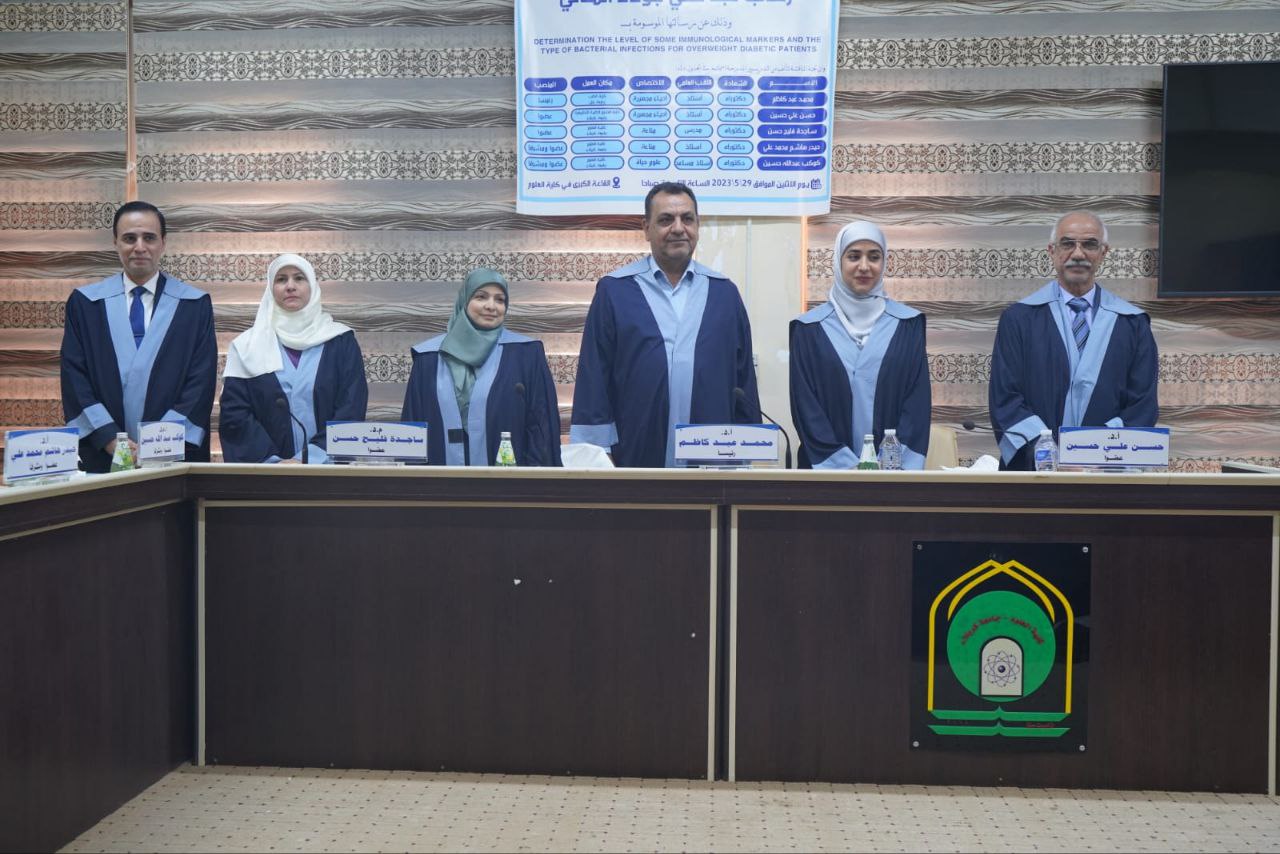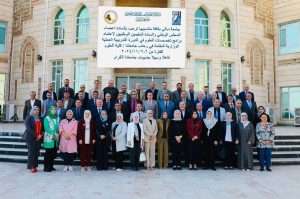A master’s dissertation in the College of Science at the University of Kerbala has discussed determining the level of some immunological parameters and the type of bacterial infections for overweight diabetics, by researcher Rehab Abd Ali Gouda entitled “Determining the Level of Some Immunological Criteria and the Type of Bacterial Infection for Overweight Diabetics”.
The study aims to know the effect of B10 reg cells on type 1 diabetes and the relationship of the percentage of these cells to weight gain in diabetic patients and bacterial infections.
The study included collecting 50 samples (blood and urine) in the governorates of Babylon and Karbala for the period from February to June 2022. 40 of them were children with type 1 diabetes and 10 were healthy subjects, all males, between the ages of 5-15 years, and they were classified into four groups based on weight and bacterial infection. The study concluded that the proportion of B10 reg cells was significantly reduced in patients with type 1 diabetes and the percentage of CD80 expression on Breg was decreased in the studied pathological samples.
As well as the observation of bacterial infection in diabetic patients Kucuria is uncommon in the urinary tract infection.
The thesis recommended studying molecules expressed by Breg cells that have direct effects on inhibition, such as Fas, and studying some types of cytokines secreted by these cells, as well as genetic analysis of Kocuria rosea and Kocuria Kristina to find out the gene responsible for their transformation into pathogenic bacteria in the urinary system.






























































